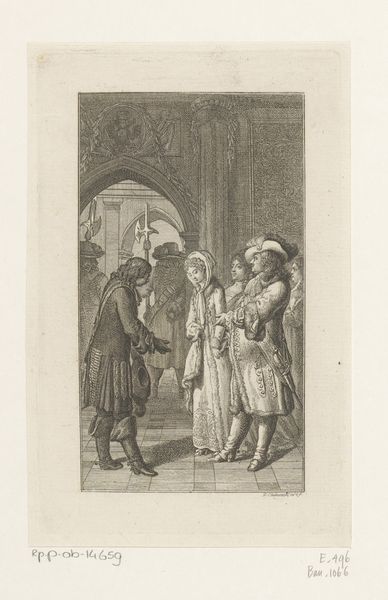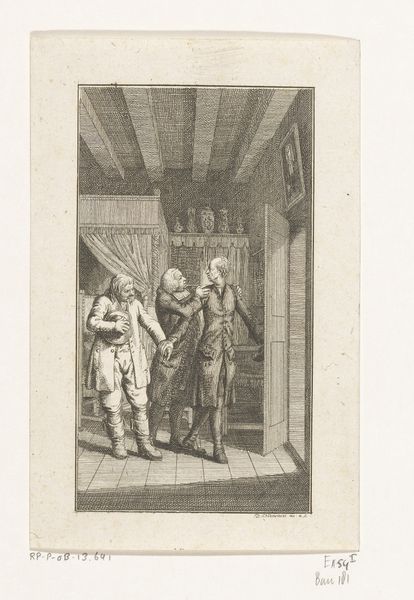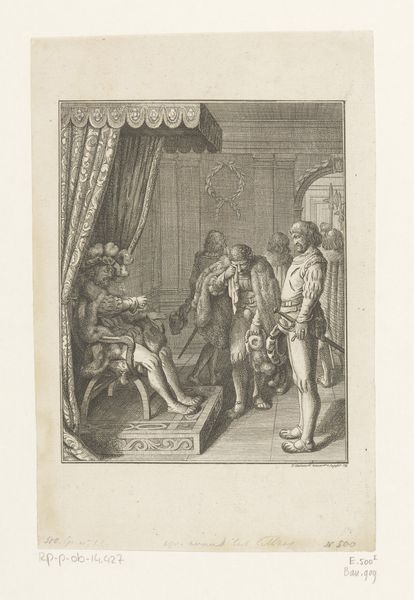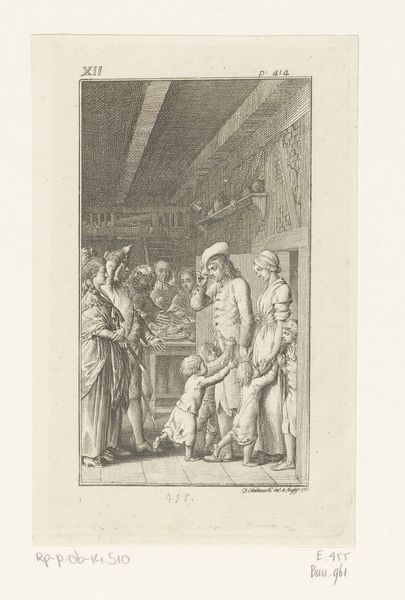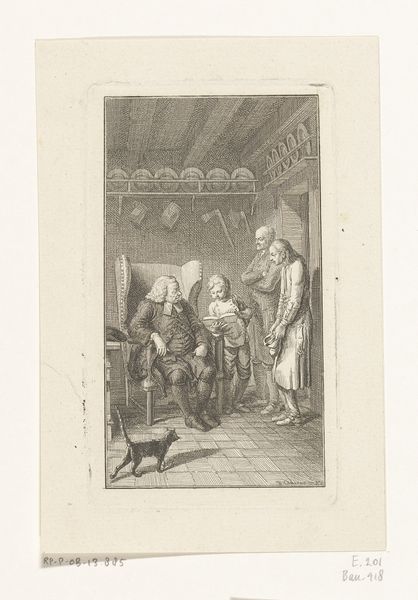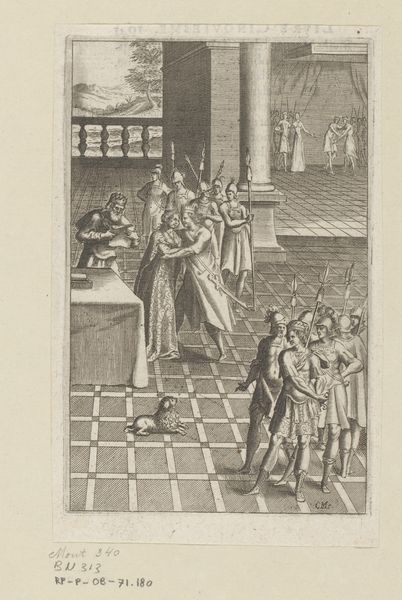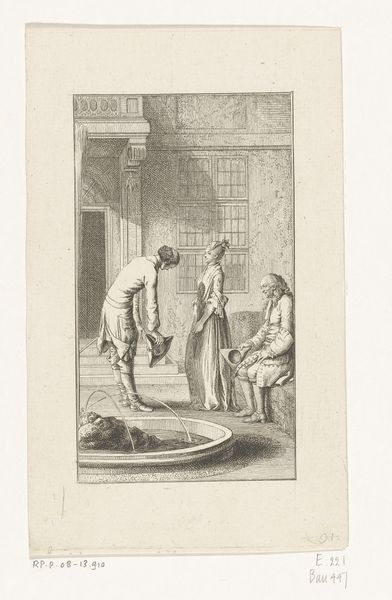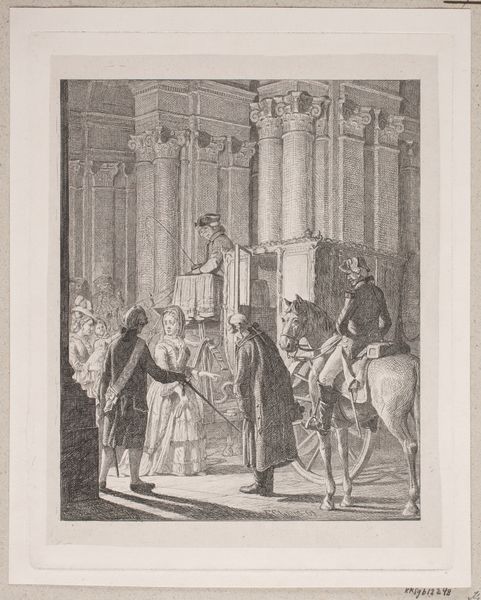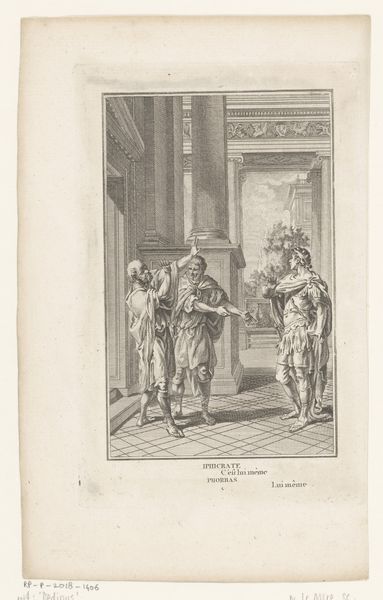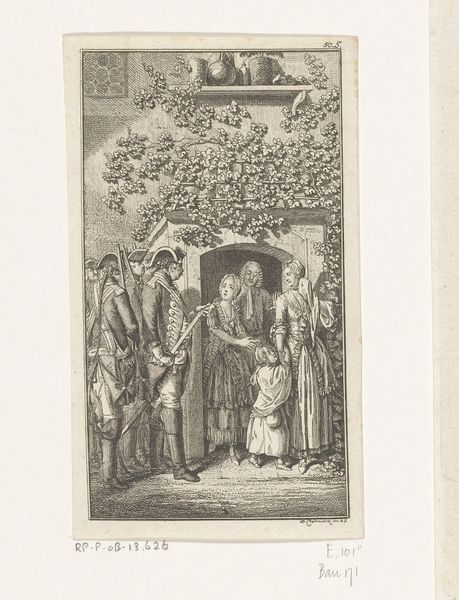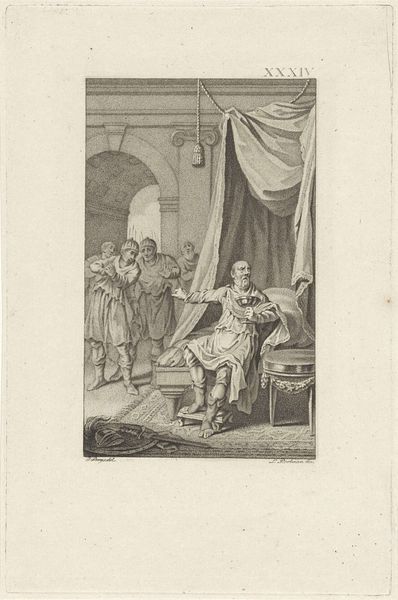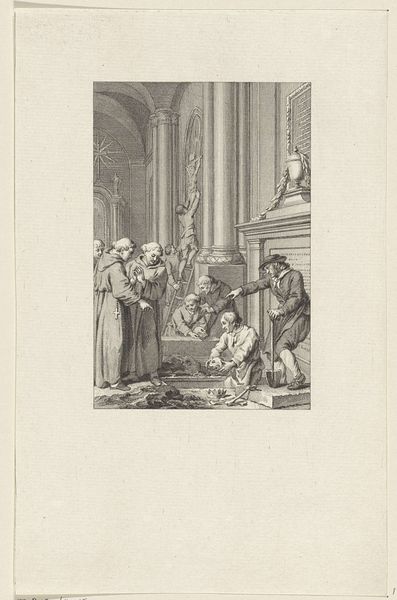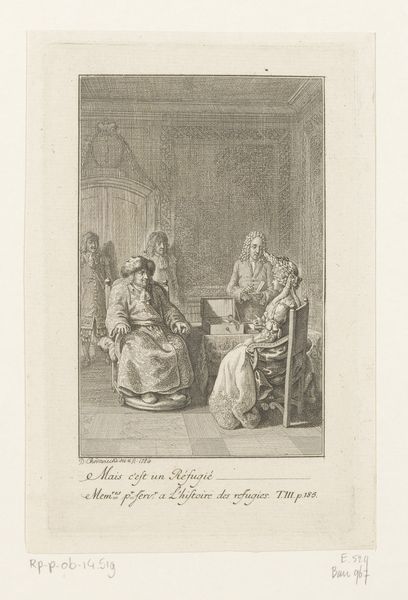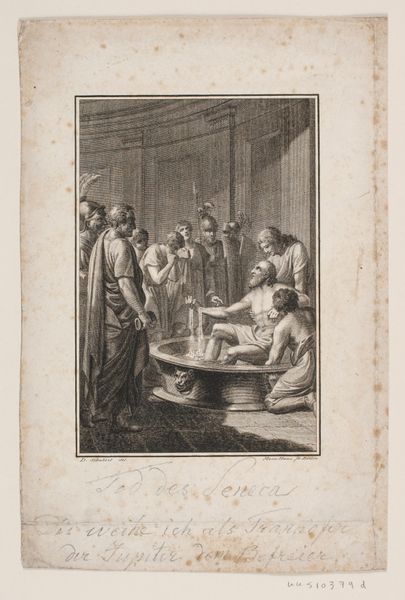
Dimensions: height 180 mm, width 120 mm
Copyright: Rijks Museum: Open Domain
Daniel Nikolaus Chodowiecki, a printmaker active in 18th century Germany, created this etching, titled ‘Waldenzen buigen voor keurvorst Friedrich Wilhelm’, which translates to ‘Waldensians bow to Elector Friedrich Wilhelm’. The image is a fascinating look at the intersection of religious tolerance and state power. Visually, we see a group of figures bowing before a royal personage, possibly offering gifts. This humble posture contrasts sharply with the opulence of the royal court, symbolized by the elaborate wigs and rich fabrics. Historically, the scene refers to the Edict of Potsdam in 1685, in which the Elector of Brandenburg-Prussia offered refuge to persecuted Waldensians, a Protestant religious group. The act of bowing is thus loaded: it acknowledges the Elector's power, but also his benevolence. As art historians, we can delve into archives of primary source documents, such as records from the Brandenburg court or Waldensian accounts of their experiences, to better understand the nuances of this historic moment and the complex negotiations between religious freedom and political authority.
Comments
No comments
Be the first to comment and join the conversation on the ultimate creative platform.
